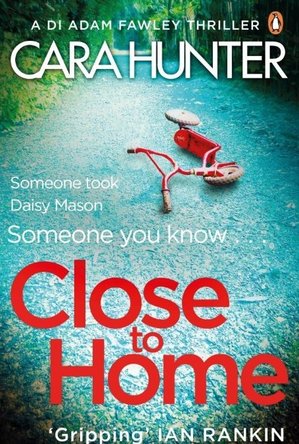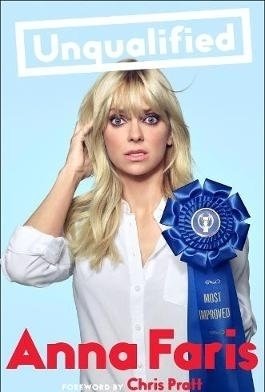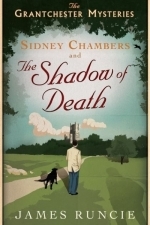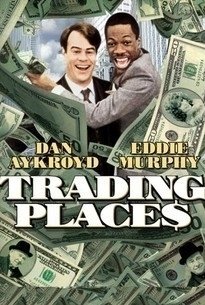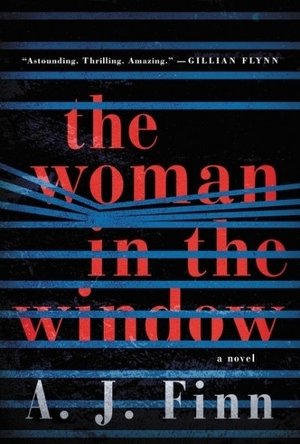
Gaana Music - Songs & Radio
Music and Entertainment
App
Gaana is the one-stop solution for all your Music needs. Gaana offers you free, unlimited access...

Meditation Music for Zen Meditation Relaxation Yoga and Massage Therapy
Music and Health & Fitness
App
Meditation Music is a wonderful compilation of relaxation and meditation music by world-renowned...
Ivana A. | Diary of Difference (1171 KP) rated Close to Home in Books
Oct 2, 2020
Close To Home is the first book in a series called DI Adam Fawley. The books are not related to themselves and can be read as standalones. They all feature the detective Fawley, therefore the series solution. Something similar to Dan Brown's series. I listened to the audio book, and I think that the format might have a little blame on my rating.
In this book, the 8-year-old girl Daisy Mason disappears from her parents's summer party. No one in the neighbourhood saw anything, not even the parents, and the detective is trying to keep an open mind in this whole situation, as someone is clearly lying.
The story begins with an interesting premise, and I loved the initial interviews that are happening, right after the disappearance. And after this initial moment, everything goes downhill.
There are many twists in this book, and they all are happening based on dumn luck or weird circumstances.
I would understand if this happened once or twice, but they have solved the whole mystery with coincidences happening one after another as well as random plot lines being added in the middle of nowhere, just to keep the story going.
Oh - we're running out of clues. Let's add a secret random second family the dad has. Oh - we're running out of clues again. Let's add a suspicious background for the mother. And now, let's make both these events come up at them at the same time, right when we're trying to solve an investigation. And now, let's add a mental issue with the brother. (Despite receiving all doctor's reports at the beginning)...
Too many events that came up afterwards and that I still have trouble to believe could make sense.
And on top of all this, I need to mention that the book doesn't have chapters as such. The parts are split with excerpts from social media. Something which I truly believe I would have enjoyed if I read the book. But instead, I was listening to it. And it is so annoying.
The below excerpt is not a quote, as I don't have the paperback copy. However, it does represent the true format of how this sounded in the audiobook:
Twenty-ninth of October, nine twenty five.
Angela G Bettaton at angela dot g bettaton. I hope they find the person that took Daisy. Hashtag Daisy Mason. Hashtag Find Daisy.
Mike eighty seven at mike dot eight seven The person that did this should take responsibility. Hashtag Find Daisy. Hashtag Missing Girl.
The ending - it just wasn't worth the wait, and it was the most unsatisfying ending I have ever encountered in mystery novels.
I regret picking this book up and I regret reading it. I really wish I love it, as I was looking forward to Cara Hunter's new novel, but now, I am not so sure anymore.
If you think you might enjoy it, please pick it up! Perhaps you might love it, who knows!

In-Flight Assistant
Games and Utilities
App
Add a whole new dimension of realism to your Infinite Flight experience with this polished,...
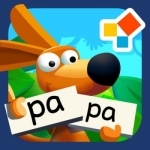
Le bonheur de lire dès 3 ans: les fondements de la lecture en maternelle
Education and Games
App
RENCH ONLY ‘Le bonheur de lire’ offers a fun and catchy gameplay. The child is immersed in a...

Sound Touch Lite - Play baby games & animal photos
Education and Entertainment
App
OVER 3 MILLION DOWNLOADS! JOIN THE FUN! YOUR KIDS ARE GOING TO LOVE IT! Trains, Horses, Boats,...
Overall, the book feels pretty real and authentic. You quickly get an idea of the kind of person Anna seems to be--kind, funny, talented, and perhaps a little insecure. I'll admit that since I started listening to Anna's podcast, I've felt a kinship to her, and my review is obviously influenced by that. She's so down-to-earth and really damn funny on her podcast. I also love the idea that she lived in her head for much of her childhood, making up stories (it sounds a little familiar, you see). If you like Anna's podcast, it will be hard not to enjoy her book, although some of the chapters and stories will sound a bit familiar if you're a faithful listener.
My love of Anna was only deepened by reading her book, which is quite readable and broken into simple, short chapters. We get glimpses into Anna's childhood, her first big relationship, a little insight into her big break with "Scary Movie," and more. I relate to her on so many levels. We're both fascinated by other people's lives; never had a big group of female friends; have no patience for small talk; are not wedding people; possess an emotional defense built up from our parents; and enjoy calling the numbers on vehicles to report about truck drivers' good driving. She just happens to be a lovely, famous, wealthy actress, and I'm um, well, yes. Otherwise, we're the same, right? ;)
Of course, the elephant in this review is Anna's recent split from her husband, Chris Pratt, who wrote the foreword to the book, which was apparently revised somewhat for publication. It's hard not to psychoanalyze Anna in light of her recent marriage breakup. You read about her self-admitted inability to admit failure and her tendency to jump from one relationship straight to the next. So much of the book is about Chris and their relationship, and it's a shame that it's a distraction from an enjoyable memoir about a really smart and talented woman, who should stand on her own merit, apart from her (soon-to-be-ex) husband. It's also heartbreaking to read these chapters where it sounds like they truly love each other--and where they got through the premature birth of their son together--and know they are no longer married.
Overall, this is a fun, easy-to-read memoir. If you like Anna, her films, or her podcast, you'll probably enjoy this one. It's a quick read, full of lists, humorous moments, and short chapters, although there are definitely serious pieces, too. It really only made me like her more. 3.5+ stars.
Hazel (1853 KP) rated Sidney Chambers and the Shadow of Death in Books
Jul 27, 2017
In 2014, ITV broadcasted the first episode of Grantchester, a drama series based on books by British novelist, James Runcie. Although written during the twenty-first century, the story is set in the 1950s in a village on the outskirts of Cambridge. Sidney Chambers, a young Canon in charge of the Church of St Andrew and Mary, is a polite and friendly character who, despite his reluctance, ends up acting as a detective in a variety of crimes.
Sidney Chambers and the Shadow of Death is the first book of six in The Grantchester Mysteries. Split into six individual baffling cases, the background story of Sidney’s private life continues to develop throughout. Each crime is committed and swiftly solved by the Canon and his friend, Inspector Geordie Keating, although it is Sidney who ultimately resolves the case.
Murder, jewellery theft and art forgery and just some of the felonies Sidney grudgingly gets involved with. In fact, unresolved crimes tend to land in his lap rather than offering his assistance willingly. Up at dawn to work on sermons before rushing off to capture criminals, Sidney is never off duty.
A vicar may seem like an unlikely candidate for a detective, however, people tend to open up to him and unintentionally reveal delitescent information. Listening to suspects and witnesses without pre-judgement allows Sidney to think things through carefully rather than jumping to conclusions. From the moment the crime is committed right up until the story’s denouement, Sidney passionately does everything he can to make sure the correct culprit is discovered.
What makes this series different from other crime novels is the focus on Sidney Chambers’ own life. James Runcie emphasises the loneliness of a bachelor living in a vicarage with only a curate and crotchety housekeeper for company. Readers are drawn into Sidney’s stories and hold onto the hope that his dalliances with the beautiful Amanda turn out to be something more concrete.
Those who have watched the ITV series will be familiar with the stories in this book because the producer has stuck to the exact storyline, not missing a single thing out or adding anything extra. The fact that there were only two years between publishing and screen production goes to show how well written and thought out these stories are. Unlike famous detective novels such as Sherlock Holmes or those by Agatha Christie, The Grantchester Mysteries are not set at the time of writing, so, although they are historically accurate, the prose is suitable for present day readers.
Each story is quick to read and is easy going, making it a relaxing and enjoyable book. It is not a thriller or horror, although some of the crimes are quite terrible. Instead, it is entertaining and often humorous. It is suitable for crime fiction fans as well as those new to the genre.
Regardless of whether you have watched the television series or not, Sidney Chambers and the Shadow of Death is a delight to read. Of course, ITV has given away all the endings, but it is a different experience to read it in print rather than seeing it acted out on screen. Featuring the face of James Norton on the cover so as to work as a TV tie-in, the series will be easy to spot in prime position on bookshelves both in shops and personal collections.
Phillip McSween (751 KP) rated Trading Places (1983) in Movies
Apr 7, 2018
Acting: 10
A mixture of familiar faces and a few fresh ones, performances are stellar from top to bottom. It's what you expect when true professionals come together to put on a show. Eddie Murphy's comedic timing is on point as always, playing the role of homeless man Billy Ray Valentine. Just listening to him tell his story in prison about the Quart of Blood Technique had me in stitches. He has a way of being funny in a nonchalant way, reminding me of some of my closest friends.
Denholm Elliott won my heart as the lovable butler Coleman. He's kindhearted, but can be hilariously cruel at the same time. A lot of his laughs came from watching his subtle actions (rolling his eyes after a phone call, sneaking a drink during a party, etc.).
Dan Aykroyd won me over as well in his role as rich snob Louis Winthorpe III. I hated his guts at first but ultimately came to sympathize with his character which was the whole idea. He wore the role of proud rich kid well, but excelled when it came time for him to get crazy.
Beginning: 7
Characters: 7
Cinematography/Visuals: 8
The film opens with a multitude of shots that captures the heart of Philadelphia so well. I've only visited the city once and seeing those opening shots made me want to go back. Other very memorable scenes include the party at Valentine's home (absolute bedlam) and the calamity that is the trading room floor. Just seeing all those bodies pressing in on each other is enough to make you claustrophobic.
Favorite Still Shot: Valentine laying on the ground with almost a dozen cops pointing their guns just inches from his face. That one shot has been a feature in so many film montages over the years and deservedly so. That smile Murphy delivers saying, "I give up" is timeless.
Conflict: 8
Genre: 6
Memorability: 9
Trading Places still holds up all these years later as a classic comedy. It's hilarious but it also gives you pause for thought as well about the class and race roles in society. Sure it can be absolutely farfetched at times, but it's sole purpose is seemingly not just to entertain, but to raise awareness as well. It's been a few days since I've seen the film yet it still sticks out in my head amongst others.
Pace: 8
Plot: 8
As the plot unfolded, I thought it was absolutely ridiculous...Until I started thinking about today's political landscape and considered, "Hmmm, this is exactly the kind of experiment I could see a rich person with a lot of time on their hands concocting." It isn't all the way believable, but I tend to make exceptions for action films and comedies.
Resolution: 10
Overall: 81
I like Trading Places way more than I expected to. Director John Landis does an excellent job of walking the line between funny and thought-provoking, sometimes even daring to mix the two. Very solid film.
Amanda (96 KP) rated The Woman in the Window in Books
Mar 11, 2019
Loss of a loved one.
Tragic accident.
Or...it could be something else entirely.
Ann also talks to other people with the same phobia and tries to also council them. You don't find out till much later as to why Anna who was a child psychologist now cannot bare to leave her home. She suffers from depression and is on multiple medications. She's separated from her husband, whom also has their daughter with him.
And she drinks...a lot.
One of the things I liked about Anna is her love for old movies. I loved how Finn incorporated some lines from different movies, including Alfred Hitchcock. Anna witnesses a murder in her neighbors house across the street. Try as she may, nobody takes her seriously and blame it on the medication she takes with alcohol.
“You can hear someone’s secrets and their fears and their wants, but remember that these exist alongside other people’s secrets and fears, people living in the same room.”
I kind of felt bad for her, but sometime during the story, I started to get frustrated with her as well. I really got a Girl on a Train feel. The main character always needs a drink or has to drink something in order to keep herself together, even though the alcohol doesn't help her situation at all.
On a different note, Girl on a Train was highly depressing.
The more the story progressed the more intrigued I got because there were quite a few twists that I honestly didn't see coming and I found myself yelling, 'WHAT?' Glad I was only listening to a book in the car and not in my house where someone could look at me funny. Not that people don't do that anyway, but such as life as a bookworm, I don't care.
“The definition of insanity, Fox, Wesley used to remind me, paraphrasing Einstein, is doing the same thing again and again and expecting different result.”
I've read a few psychological thrillers and while they were good, none kept me on my toes like this one. So many things happen with Anna and they come in bits and pieces but eventually make up a whole puzzle. You almost start to believe that perhaps Anna didn't see someone being murdered...maybe she did have an illusion.
Did it happen?
You have to read and find out.
I'd definitely give this 4 1/2 stars. Finn's writing in Anna's point of view is brilliant. You are inside her head and you are seeing everything through her eyes. She may start to ramble from time to time, but that just shows that she's still someone who is suffering. Other characters that play a major role in her life you don't know all that much...but you learn who they are in the end.
It's a long book, but every minute of it was well worth the listen. I will say that toward the beginning it was more like Girl on a Train, but it slowly morphs into Alfred Hitchcock's, Rear Window. I will say that I look forward to A.J. Finn's next novel.
